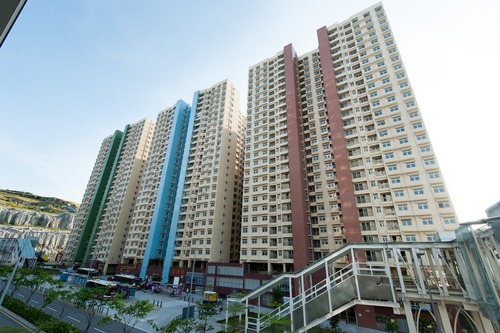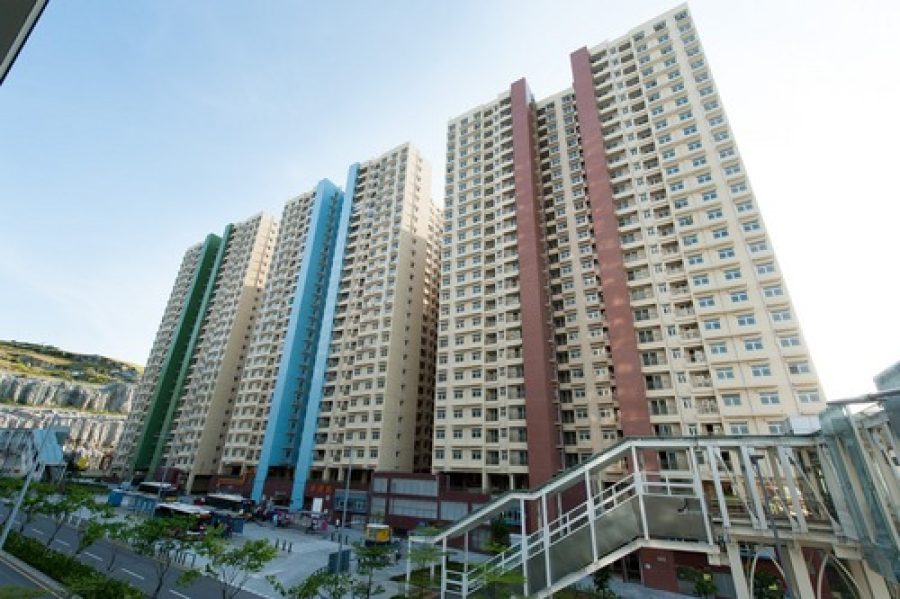The Legislative Assembly (AL) on Thursday passed a government-initiated bill on social rental housing, according to which an individual applicant for a social housing unit must be aged at least 23, while the representative of a household applying for a social housing unit must be at least 18 years old — the same as the current minimum age requirement.
According to the new law, all applicants — individual applicants for a unit and the representatives of respective households applying for a flat — must be permanent residents who have been living in Macau for at least seven years.
Currently, both individual applicants and the representatives of respective household applicants must be aged at least 18.
The government’s public housing programme comprises subsidised home-ownership scheme (HOS) flats and social rental housing units. The government’s current public housing policy is that the construction of social rental housing be given priority over the construction of HOS flats, which are much cheaper than their counterparts in the private property market. Social housing rentals are also much lower than those in the private market.
The new social housing law will take effect one year after its promulgation in the Official Gazette (BO), when it will replace the existing bylaw regulating social housing which came into force in 2009.
Government-drafted by-laws are officially known as administrative regulations.
The bill’s outline was passed during a plenary session of the legislature in November 2017. The legislature’s 1st Standing Committee held 19 meetings to review the bill.
Secretary for Transport and Public Works Raimundo do Rosário and Housing Bureau (IH) Director Amaldo Ernesto dos Santos attended Thursday’s plenary session when the bill was voted on article-by-article in its final reading. The bill’s final article-by-article debate and vote had started on Wednesday. During Wednesday’s plenum, about the first 10 articles of the bill, which has 38 articles, were voted on.
The first draft of the bill proposed that all applicants — regardless of being an individual applicant or the representative of a household applicant — must be aged at least 23.
Special rule for orphans
The final version of the bill, which was reviewed by a standing committee of the legislature and revised by the government in the process, states that the minimum age of the representative of a household applicant will remain unchanged at 18, whereas the minimum age requirement for individual applicants will be increased to 23, except for orphans who will be eligible to apply for a social housing unit when reaching the age of 18.
According to the final version of the bill, the chief executive can accept applications from those aged between 18 and 22 under special circumstances, provided that the applicants can provide a “reasonable explanation”.
The first draft of the bill proposed that full-time students, irrespective of their age, were not entitled to apply for a social housing unit as an individual applicant. However, the government removed the requirement from the final version of the bill which was passed by lawmakers on Thursday.
‘Permanent basis’
According to the new social housing law, applications for social housing units will be carried out on a “permanent basis” – so that eligible residents will be able to apply for social housing units at any time. Currently, eligible residents can only submit their applications each time the government launches a new round of applications for social housing units.
According to the new law, the allocation of social housing units will be based on a points-based system. While according to the new law, the points-based system’s detailed criteria are to be set by an executive order signed by the chief executive to be promulgated in the Official Gazette (BO) in due course, the new law stipulates that when ranking applicants for the allocation of social housing units, the government will take into consideration a number of factors such as: the length of residence in Macau of an applicant; the length of time an applicant has been waiting for a flat; whether a household includes senior citizens or disabled people; and the ratio of permanent residents in a household applying for a flat.
Commenting on the new “permanent basis” for applications for social housing units, Rosário said during Wednesday’s plenum that in the long term — when the supply of social housing units will be sufficient, the government was confident that applicants for social housing units will need to wait for less than four and a half years before they can be allocated a social housing unit.
According to the new law, the chief executive will set the maximum amounts concerning the monthly income and net assets for individuals and households to be eligible to apply for a social housing unit in an executive order in due course.
The new law states that the chief executive can approve those who have experienced special circumstances to be allocated a social housing unit without the need to meet the various requirements listed in the law, such as those who need to be provided with a home due to a natural disaster; those who are required by the government to move out from their home due to public interest; and those who need to be provided with a home due to a family, physical or mental “crisis”.
During Thursday’s plenum, several lawmakers asked about the exceptions. Rosário replied that the government will “not be lenient” when assessing the applications from such individuals or households. Rosário said that if the government adopted a lenient approach on the matter, it would mean that the situation in which such applicants not needing to queue on the waiting list would probably happen more often, which he said was unfair to other applicants on the waiting list.
According to the Macau Post Daily, Rosário said that the government would be careful when assessing such kind of applications.






